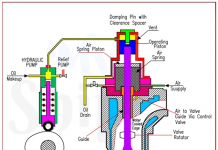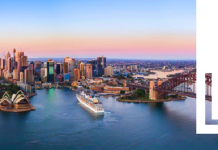
IMO developed initially:
- A.973(24) – Code for the enactment of the compulsory IMO instruments in the year 2005, as revised by the A.1054(27) in the year 2011, as Audit Standard for the VIMSAS, & again by A.1070(28) in 2013 & made mandatory, as Audit Standard for the IMSAS
- MEPC 66 accepted amendments to MARPOL to make III Code mandatory as from the year 1/1/2016
- MSC 93 accepted amendments to SOLAS, STCW, LL, & just mentioned relevant compulsory instruments to make III Code applicable & mandatory as from 1/1/2016
Consists of:
- Part 1 – Common Areas
- Part 2 – Flag State
- Part 2 – Coastal State
- Part 4 – Port State
Common Areas:
Objective:
- enhance global maritime safety & protection of the marine environment & help States in the execution of the instruments of the Organization
Strategy
- a State should develop an overall strategy to assure that its international obligations & responsibilities as a flag, port & coastal State are met
- a State should set up a methodology to monitor & assess that the strategy assures effective implementation & enforcement of relevant international obligatory instruments
- a State should continuously review the strategy to achieve, maintain & enhance the overall organizational performance & capability as a flag, port & coastal State.
- When a new or revised instrument of the Organization enforced for the State, the Government of that State shall be in a position to apply & enforce its provisions through suitable national legislation & to provide the required implementation & enforcement infrastructure. This means that the Government of the State shall have:
- the ability to spread laws, which allows effective jurisdiction & control in administrative, technical & social matters over ships flying its flag &, in particular, provide the legal basis for the general requirements for registries, the inspection of the ships, safety & pollution-prevention laws applying to such ships & the making of similar regulations;
- a legal basis for the implementation of its national laws & regulations including the associated investigative & penal processes; &
- the availability of sufficient personnel with the maritime expertise to help in the spread of the essential national laws & to discharge all the responsibilities of the State, including reporting as required by the respective conventions.
FLAG STATE:
- Enforce policies through the issuance of the national legislation & guidance, which will help in the accomplishment & enforcement of the requirements of all safety & pollution prevention conventions & protocols to which they are parties
- Allocate responsibilities within their Administrations to update & revise any relevant policies adopted
- implement applicable international rules & regulations as well as develop & circulate any interpretative national regulations
- compliance with the requirements associated with the international standards of training, certification & watch keeping of the seafarers.
- the conduct of investigations into casualties & adequate & timely handling of the cases of ships with identified deficiencies. Marine safety investigations should be conducted by the qualified, impartial & objective investigators, knowledgeable in matters relating to the casualty.
- A flag State shall assure that the ships entitled to fly its flag are sufficiently & efficiently manned
- the periodic inspection of the ships entitled to fly its flag to verify that the actual condition of the ship & its crew is in conformity with the certificates it carries
- Personnel accountable for, or performing, surveys, inspections & audits on ships & companies covered by the relevant international mandatory instruments shall be qualified
- A flag State shall, on a periodic basis, assess its performance with respect to the enforcement of the administrative processes, procedures & resources essential to meet its obligations as needed by the international instruments to which it is a party.
COASTAL STATE
Enforce policies through the issuance of the national legislation & guidance, which will help in the implementation & enforcement of the requirements of all safety & pollution prevention conventions & protocols to which it is a party
Obligations & responsibilities may include
- radio communication services;
- meteorological services and warnings;
- search and rescue services;
- hydrographic services;
- ship routeing;
- ship reporting systems;
- vessel traffic services; and
- aids to navigation
A coastal State shall periodically evaluate its performance in respect of exercising its rights and meeting its obligations under the applicable international instruments.
PORT STATE
Ensure that its legislation, guidance and procedures are established for the consistent implementation and verification of its rights, obligations and responsibilities contained in the relevant international instruments to which it is a party
Rights, obligations and responsibilities include,
- provision of suitable reception facilities to accept all waste streams regulated under the instruments of the Organization;
- port State control; and
- keeping a register of fuel oil suppliers
IMSAS:
Purpose:
- The IMO Member State Audit Scheme is considered to provide an audited Member State with a complete & objective assessment of how effectively it administers & execute those obligatory IMO instruments which are covered by the Scheme. Review the rights & obligations of the States emerging from the IMO treaty instruments;
- assess, monitor & review the current level of accomplishment of the IMO instruments by States in their capacity as flag, port & coastal States, with a view to identifying areas where States may have difficulties in fully executing them;
- identify the reasons for the difficulties in executing provisions of the relevant IMO instruments, considering any relevant information collected through, inter alia, the assessment of performance, the investigation of marine casualties & incidents & port State control (PSC) data, while paying particular attention to the difficulties faced by developing countries;
- consider proposals to help States in executing & complying with IMO instruments by the development of suitable instruments, guidelines & recommendations.
- Inspect investigation reports into marine casualties & incidents & keep an efficient & comprehensive knowledge-based mechanism to support the identification of trends & feed into the IMO rule-making process;
- review IMO standards on maritime safety & security & the protection of the marine environment, to keep an updated & harmonized guidance on survey & certification related requirements; and
- promote global harmonization of the PSC activities
Instruments
- SOLAS 74
- STCW 78
- Loadline 66/ Protocol 88
- Colreg 72
- Tonnage 69
- Marpol



